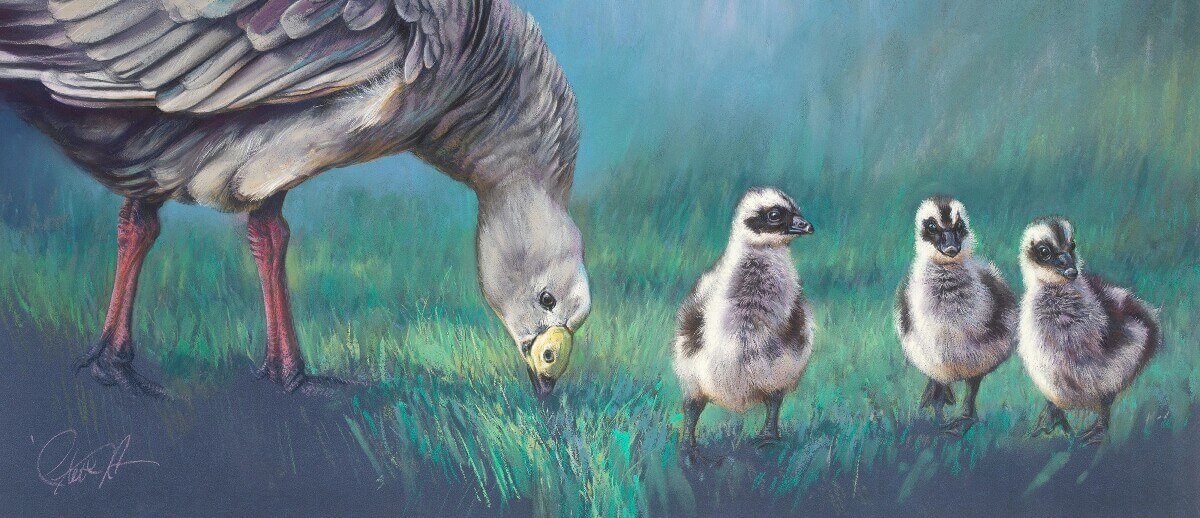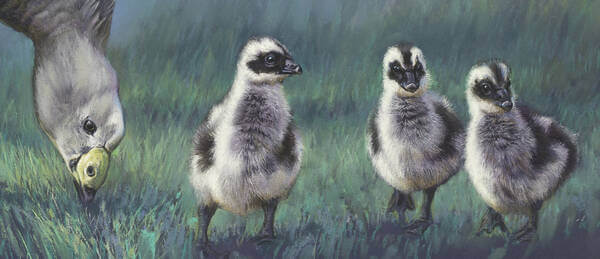Ever-watchful – Cape Barren Geese
Pastel on Canson Tex paper
Image size 30 x 69cm
Over many years I have had the pleasure of working closely with the wild Cape Barren geese on Kangaroo Island where they were introduced in the 1920s and 1930s. These beautiful birds were hunted to almost total extinction on the mainland by European settlers and introduced foxes and it is only in relatively recent years since the halt on hunting that the birds have adapted to feeding on agricultural pasture lands and have once again become relatively secure though they do remain one of the world’s rarest goose species.
Breeding occurs from May to September and the male constructs a nest at ground level in a grassy tussock or scrubby bush. It is lined with soft downy feathers and both parents can defend it quite aggressively, flapping and running at intruders and also wildlife artists who get too close. Once the fuzzy little bandits hatch, they are quite precocious and will often straggle away from the adults in search of things to investigate which causes great anxiety for the parents who will grunt and honk loudly to round them up again.
For me as an artist for conservation, I see the recovery of the Cape Barrens as a great thing and an indicator that concerned humans can make a positive difference but predictably, as their numbers continue to rise, some farmers are now complaining about the geese eating their pasture and are agitating for killing them once again. Seems to me that we humans are rarely if ever content to let nature take its course. We seem to want it both ways and expect other species to adapt to us but never the other way around. When you learn that adaptability and flexibility are the keys to survival of any species it gives we humans some real food for thought.


